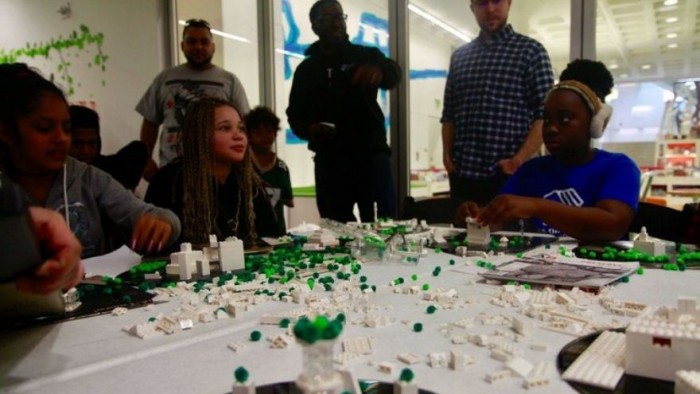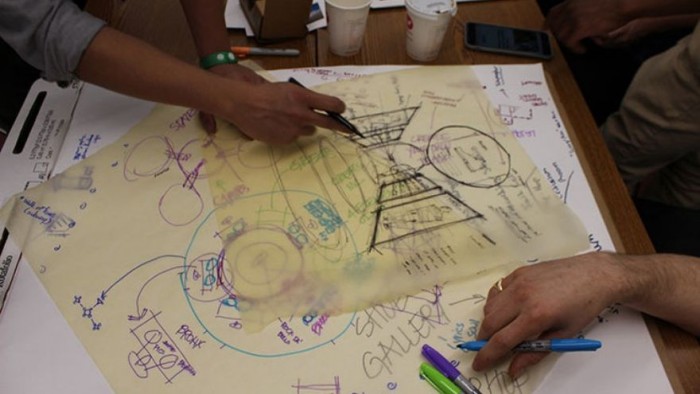People have always used hip hop to deal with life’s challenges. But what if those same people had the tools with which to change their circumstances? Michael Ford, a Detroit-born architectural designer, founded the Hip Hop Architecture Camp to combine these ideas.
Based in the US, the free club (funded by Autodesk) uses legendary tracks like Nas’ 2002 classic “I Can” to teach kids how to reimagine their cities using rhyme and rhythm.
Speaking to Good Magazine, Ford said, “Ultimately, places and spaces determine our culture, determine how we interact, how we live, and even our health conditions,”
“If we don’t have someone sitting at the table, advocating for black and brown communities, often times they are overlooked.”
The training happens over three weeks and in three stages. First, campers learn hip hop history, exploring lyrics, culture, spaces and places.
The second phase is the remixed version of the first. In it, the campers are introduced to architecture and urban planning as they create their own versions of hip hop architecture. Here, the kids learn using traditional hand drawing techniques as well as hands-on model making and 3D computer modelling.
For Ford, these are the skills that the kids take away from the camp into their future careers. They use lyrical dexterity analysis to find patterns in the syllables and rhythms from songs. With it, they create their own “blocks”.
Lastly, campers learn the basics of writing music and rhyming schemes as they create a track and music video summarising their camp experience.
“I think this idea of becoming a maker is right there next to becoming an architect,” Ford was quoted as saying. “Becoming the ultimate entrepreneur right now is being able to produce your own products [so] I believe I’m also giving them the skills to become producers or makers instead of just consumers, which to me is the ultimate nod to hip hop.”
Watch the mini-documentary for more:
Read more:
Art and performance-driven maths education in Cape Town
Julie Dufour: Design education for kids
Chilean designers develop the first social education tool for children








